Hoops Rumors is breaking down the 2021 offseason for all 30 NBA teams, revisiting the summer’s free agent signings, trades, draft picks, departures, and more. We’ll evaluate each team’s offseason moves, examine what still needs to be done before opening night, and look ahead to what the 2021/22 season holds for all 30 franchises. Today, we’re focusing on the Houston Rockets.
Free agent signings:
Note: Exhibit 9 and 10 deals aren’t included here.
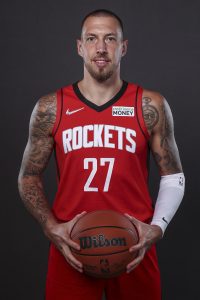 Daniel Theis: Four years, $35.61MM. Fourth-year team option. Acquired via sign-and-trade.
Daniel Theis: Four years, $35.61MM. Fourth-year team option. Acquired via sign-and-trade.- David Nwaba: Three years, $15.07MM. Third-year team option. Re-signed using Early Bird rights.
- Dante Exum: Three years, $15MM. Second and third years non-guaranteed. Base value of $7.5MM, with $7.5MM in likely incentives and $1.22MM in unlikely incentives. Re-signed using Bird rights.
- Anthony Lamb: Two-way contract. Accepted two-way qualifying offer as restricted free agent.
Two-way conversions:
- Armoni Brooks: Four years, minimum salary. Second and third years non-guaranteed. Fourth-year team option. Converted using mid-level exception.
Trades:
- Acquired the draft rights to Alperen Sengun (No. 16 pick) from the Thunder in exchange for the Pistons’ 2022 first-round pick (top-16 protected) and the Wizards’ 2023 first-round pick (top-14 protected).
- Acquired Daniel Theis (sign-and-trade) from the Bulls in exchange for cash ($1.1MM).
- Acquired Sekou Doumbouya and the Nets’ 2024 second-round pick from the Nets in exchange for cash ($110K).
- Note: Doumbouya has since been waived.
Draft picks:
- 1-2: Jalen Green
- Signed to rookie scale contract (four years, $40,808,448).
- 1-16: Alperen Sengun
- Signed to rookie scale contract (four years, $15,550,974).
- 1-23: Usman Garuba
- Signed to rookie scale contract (four years, $11,805,395).
- 1-24: Josh Christopher
- Signed to rookie scale contract (four years, $11,463,215).
Contract extensions:
- None
Departing players:
Other offseason news:
- The Rockets and John Wall agreed that he’ll sit out of games as the team works to find him a new home.
- Hired Chris Wallace and Matt Bullard in front office roles.
Salary cap situation:
- Remained over the cap and below the tax line.
- Carrying approximately $131.9MM in salary.
- $8,046,935 of non-taxpayer mid-level exception still available ($1,489,065 used on Armoni Brooks).
- Full bi-annual exception ($3,732,000) still available.
- Two traded player exceptions available, including one worth $1.8MM.
Lingering preseason issues:
- The Rockets have 16 players with guaranteed contracts, so someone will needed to be traded or released before the regular season begins.
- John Wall is technically eligible for a veteran contract extension until October 18, though he’s more likely to be traded or bought out than extended.
- Danuel House is eligible for a veteran contract extension all season.
The Rockets’ offseason:
After eight straight years in the playoffs, the Rockets stumbled into an unwanted rebuilding process last season. James Harden came to training camp with trade demands and intensified them until the team had no choice but to move him in mid-January. He was sent to Brooklyn for a package that was loaded with future draft picks, but didn’t offer much immediate help. What followed was a free fall that left Houston with the league’s worst record at 17-55.
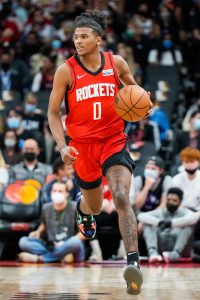 The first step toward rebuilding came with a little bit of luck on lottery night. Faced with the prospect of losing their first-round pick to the Thunder if it dropped out of the top five, the Rockets landed the No. 2 selection and used it to draft Jalen Green, an electrifying scorer from the G League Ignite who brings a mix of shot-making and athleticism that prompts some scouts to view him as a future contender for the scoring title.
The first step toward rebuilding came with a little bit of luck on lottery night. Faced with the prospect of losing their first-round pick to the Thunder if it dropped out of the top five, the Rockets landed the No. 2 selection and used it to draft Jalen Green, an electrifying scorer from the G League Ignite who brings a mix of shot-making and athleticism that prompts some scouts to view him as a future contender for the scoring title.
Houston had two other first-round selections in hand from previous trades, then made another deal on draft night, sending two future picks to Oklahoma City for the chance to draft center Alperen Sengun at No. 16. The Turkish League MVP combines with Green and fellow first-rounders Usman Garuba and Josh Christopher to give the Rockets a collection of young talent to build around.
Houston was relatively quiet on the free agent market, but the team did land center Daniel Theis in a sign-and-trade with the Bulls that wound up being a straight cash deal. Theis brings a rugged interior presence that the Rockets didn’t have last season and frees up big man Christian Wood to spend more time on the perimeter.
Outside of the draft, the major news of the offseason was an agreement with John Wall that will keep the veteran guard off the floor until management can trade him. Wall’s hefty salary — he’s owed $44.3MM this season and has a $47.4MM player option for 2022/23 — and his injury history have made it tough to find a trading partner, and the Rockets have expressed a reluctance to attach any first-round picks or take back unwanted salary in return. Unless that changes, or both sides decide a buyout is in their best interest, Wall will serve as a virtual assistant coach while Kevin Porter Jr. takes over at point guard.
Also facing an uncertain future in Houston is Eric Gordon, who will turn 33 in December and doesn’t fit the rebuilding timeline. Gordon, one of the few veterans who wasn’t moved last season, is reportedly open to being traded, and there were rumors that he might be on the move before the draft. The Rockets gave Gordon a new contract while they were still contenders, and it will pay him $18.2MM this season and $19.5MM next year, with a non-guaranteed $20.9MM salary for 2023/24. The team wouldn’t mind getting that money off its books, but as long as he remains in Houston, Gordon will join Wall in serving as a mentor to the young players, although he’ll be able to do some of his teaching on the court.
The Rockets see Porter as their answer at point guard and a perfect backcourt partner for Green. The team sent Porter to the G League to learn the position after trading for him last season, and he showed plenty of promise in 26 games after being recalled. The front office believes Porter, Wood, Kenyon Martin Jr. and Jae’Sean Tate provide a good core to complement this year’s draft haul.
Defensive lapses were a recurring issue last season, and the Rockets tried to address them by re-signing two veterans who excel on that end of the court. David Nwaba, who bounced back from a torn Achilles tendon to play 30 games last season, was rewarded with a three-year deal. Dante Exum also received a three-year contract, but because of his injury-filled past, it’s loaded with incentives and only carries a $2.5MM guarantee.
The Rockets’ upcoming season:
The Rockets may not win much more than they did last season, but it feels like the franchise is pointed in the right direction. Head coach Stephen Silas suffered through a chaotic first year on the job as roster moves, COVID-19 and a slew of injuries forced him to adjust his lineup nearly every game.
Player development will be the focus of the upcoming season as all four of Houston’s first-round picks are 19 years old. No matter how good they turn out to be, they’ll need time to adjust to the pace and talent level of the NBA. Garuba and Christopher may spend part of their rookie season in the G League to get regular playing time.
The Rockets appear headed back to the lottery, but the upcoming season offers a chance to further shape their future. Finding deals for Wall and Gordon will be a priority as the team hopes to create more opportunities for its young players and create some cap flexibility going forward. The offseason brought plenty of hope to Houston fans, but they may have to wait longer for the team to start winning again.
Salary information from Basketball Insiders and Spotrac was used in the creation of this post. Luke Adams contributed to this post.
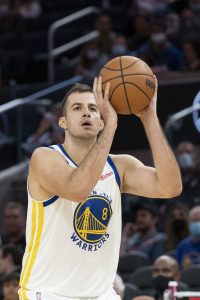
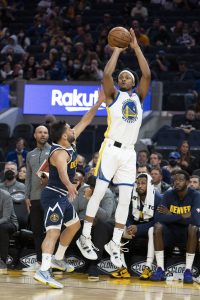
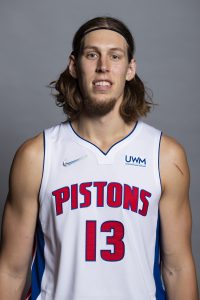 Note: Exhibit 9 and 10 deals aren’t included here.
Note: Exhibit 9 and 10 deals aren’t included here.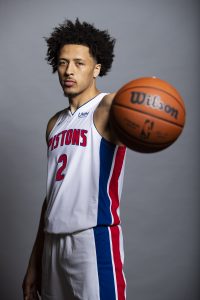 Cunningham’s combination of play-making, shot-making, length, versatility, poise and leadership was simply too much to pass up. The No. 1 pick suffered a minor ankle sprain in training camp but he’ll jump right into the starting lineup, though perhaps not at his projected position. He’ll share the backcourt with another young point guard,
Cunningham’s combination of play-making, shot-making, length, versatility, poise and leadership was simply too much to pass up. The No. 1 pick suffered a minor ankle sprain in training camp but he’ll jump right into the starting lineup, though perhaps not at his projected position. He’ll share the backcourt with another young point guard, 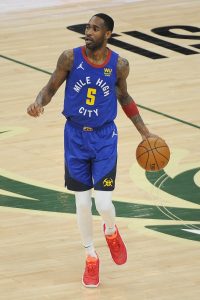
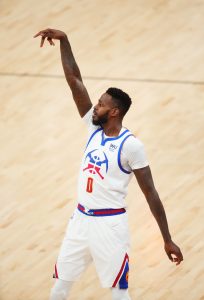 , both of whom turned down player options in search of new contracts. The Nuggets gave Barton and Green modest raises and short-term deals, locking in two key pieces of their rotation for at least one year and possibly two (Green got a second-year player option).
, both of whom turned down player options in search of new contracts. The Nuggets gave Barton and Green modest raises and short-term deals, locking in two key pieces of their rotation for at least one year and possibly two (Green got a second-year player option).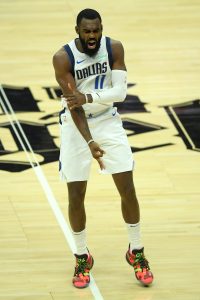
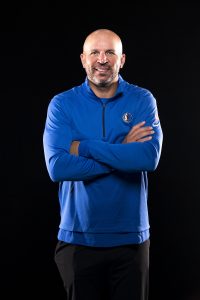 Replacing Nelson in the front office will be longtime Nico Harrison, who has drawn interest from NBA teams in the past but has spent the past two decades working at Nike. That role allowed him to establish strong connections with players throughout the league, though he has no history of making key personnel and roster decisions for an NBA franchise and may lean on the more experienced executives in the Mavs’ front office during his first year on the job.
Replacing Nelson in the front office will be longtime Nico Harrison, who has drawn interest from NBA teams in the past but has spent the past two decades working at Nike. That role allowed him to establish strong connections with players throughout the league, though he has no history of making key personnel and roster decisions for an NBA franchise and may lean on the more experienced executives in the Mavs’ front office during his first year on the job.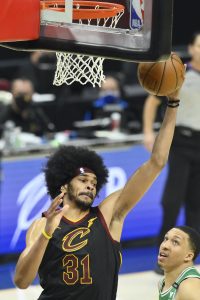
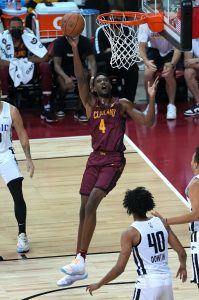 In 2021, Cleveland didn’t exactly recapture its previous lottery magic, but the team didn’t need to land the No. 1 pick. Moving up just a couple spots to No. 3 put the Cavs in a position to land
In 2021, Cleveland didn’t exactly recapture its previous lottery magic, but the team didn’t need to land the No. 1 pick. Moving up just a couple spots to No. 3 put the Cavs in a position to land 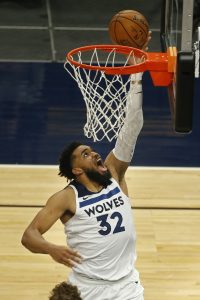 Towns has one All-NBA season under his belt already, having made the Third Team in 2018. Towns played in all 82 regular season games that year and Minnesota made the postseason for the only time during his six-year career.
Towns has one All-NBA season under his belt already, having made the Third Team in 2018. Towns played in all 82 regular season games that year and Minnesota made the postseason for the only time during his six-year career.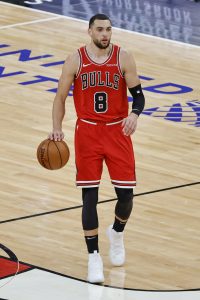 Unlike Towns or Booker, LaVine will be a free agent during the 2022 offseason. He was an extension candidate this offeason, but once the Bulls used their potential cap room on roster upgrades rather than a renegotiation of LaVine’s 2021/22 salary, the odds of him signing a long-term extension plummeted.
Unlike Towns or Booker, LaVine will be a free agent during the 2022 offseason. He was an extension candidate this offeason, but once the Bulls used their potential cap room on roster upgrades rather than a renegotiation of LaVine’s 2021/22 salary, the odds of him signing a long-term extension plummeted.